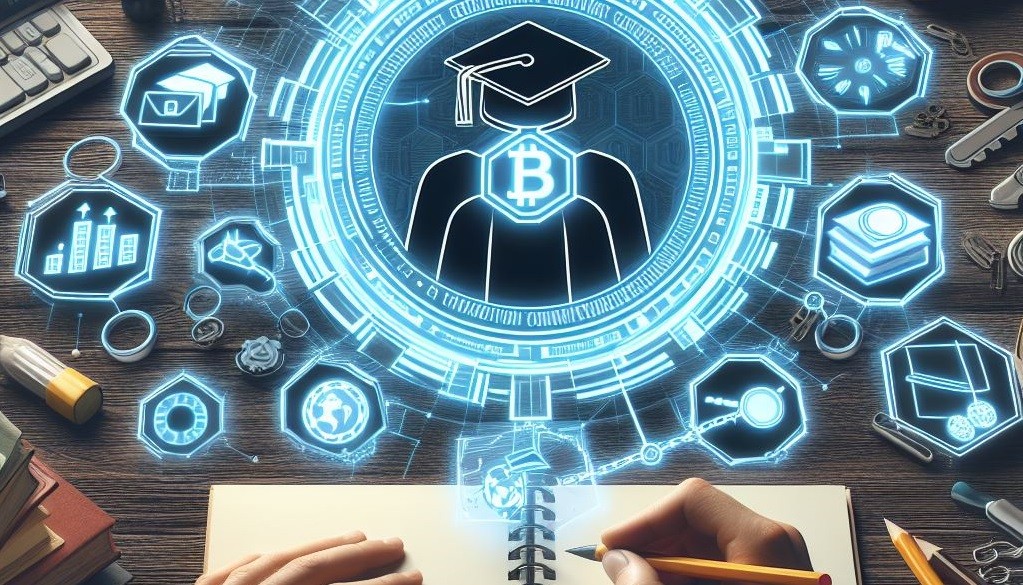In the digital age, the integrity and security of academic records are more critical than ever. As colleges continue to evolve with technological advancements, the need for robust systems to manage student achievements grows. Blockchain technology is recognized for its decentralization, transparency, and immutability, making it a promising solution to many current challenges. By integrating blockchain into academic record-keeping, schools can create a secure and unalterable repository of student credentials, significantly reducing the risk of fraud and enhancing the verification process.
Students often juggle multiple responsibilities, from managing coursework to preparing for exams, and they rely on various services to support their academic journey. For instance, when faced with numerous assignments, some might seek a paper writing service that can write my PowerPoint presentation for me. In a technology-driven educational environment, blockchain can simplify various processes, allowing the focus to remain on learning and personal development.
Blockchain in Academic Record Keeping
What is Blockchain?
Blockchain operates as a distributed ledger, where each “block” contains several transactions. Whenever a new transaction is made, a record is added to the ledger of every participant. This decentralized approach ensures no single entity controls the entire chain, enhancing both security and transparency. The technology is inherently resistant to the modification of data, providing a trustworthy environment for record-keeping. This makes it ideal for academic settings where the accuracy and permanence of records are crucial.
Benefits for Academic Institutions
Implementing blockchain in academic settings can revolutionize how accomplishments and credentials are handled. For one, blockchain can permanently secure academic credits and degrees, making them easily verifiable by employers or other schools. This system minimizes the risk of document forgery and loss. Additionally, blockchain facilitates the transfer of credits between institutions by standardizing the credential verification process, making it faster and more reliable. Beyond just record-keeping, blockchain could also be utilized to automate enrollment processes and financial transactions, ensuring a smoother operational flow within educational institutions.

Enhanced Collaboration and Data Exchange
Another significant advantage of adopting blockchain in academic settings is the enhanced collaboration and data exchange it facilitates between different educational institutions and departments. With blockchain, schools can create a shared, secure platform where information such as student transcripts, extracurricular achievements, and even letters of recommendation are easily accessible by authorized parties. This transparency not only simplifies the process of applying for advanced studies, transfers, or even job applications but also ensures that all records are up-to-date and accurate, eliminating discrepancies and delays that can often hinder academic and career progression.
Challenges to Adoption
Despite its benefits, integrating blockchain into academic systems is not without challenges. These include the high initial technology investment, the need for widespread adoption by all stakeholders, and the technical expertise required to implement and maintain blockchain systems. Educational institutions must also address privacy concerns and ensure compliance with regulations such as FERPA (Family Educational Rights and Privacy Act) in the U.S. Moreover, the scalability of blockchain solutions and their ability to handle large volumes of data without compromising performance remains a significant concern that needs to be addressed.
Real-World Applications and Future Prospects
Global Examples of Blockchain in Education
Several institutions worldwide are already exploring blockchain-based solutions for academic records. For instance, the Massachusetts Institute of Technology (MIT) has issued blockchain-based digital diplomas to a cohort of graduates, which allows them to share a verifiable and tamper-proof version of their credentials with potential employers. Similarly, institutions like the University of Nicosia have fully embraced blockchain for issuing all manner of student records, setting a precedent for other schools to follow.
Potential for Future Integration
As blockchain technology advances and becomes more user-friendly, its potential uses in the field of education are likely to grow. Future developments could include student-driven learning experiences and micro-credentialing, where students accumulate credits for smaller, modular courses throughout their lifetime, tracked and verified via blockchain. This could lead to a more personalized and flexible education system where students can build a portfolio of skills and knowledge tailored to their career aspirations and learning preferences. Such advancements could drastically change the landscape of education, making learning more adaptable to the needs of a rapidly evolving job market.
Conclusion
Integrating blockchain technology into the management of academic records represents a significant leap forward in how educational achievements are recorded, stored, and shared. While challenges remain, the potential to enhance the transparency, security, and efficiency of academic records is undeniable. For students navigating the complexities of college life, from studying to managing homework, blockchain offers a streamlined and secure way to safeguard their educational achievements.
Adopting such innovative technologies not only prepares students for a digital future but also transforms how educational institutions operate. As technology continues to evolve, services like the best online paper writing services will become increasingly integrated into academic environments, enhancing students’ learning experiences and academic success.
- Unlock the Power of AI: Unveiling Innovative Ways to Earn Income Online
- How Database Monitoring Services Can Ensure Business Continuity
- Artificial Intelligence in SEO: Exploring Opportunities for Semantic SEO, Data-Driven Strategies, Link Building, and More
- New book is out! Business models in emerging technologies

